#Water Pollutants
Explore tagged Tumblr posts
Text
The US Military in Hawaii
25K notes
·
View notes
Text

When politicians say they want to take Britain back the 1950s and they actually deliver.
7K notes
·
View notes
Text
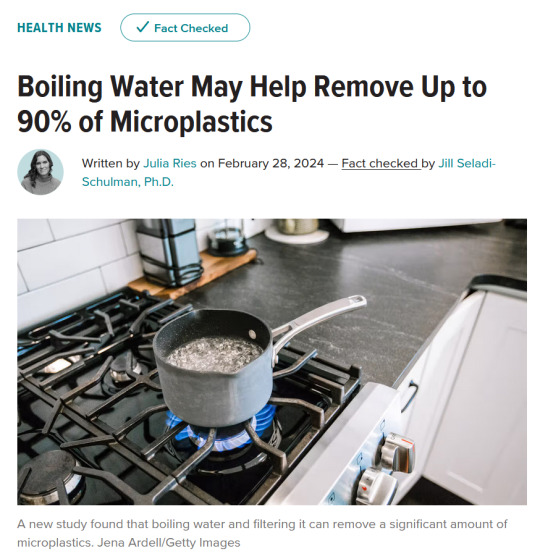
ETA: Article here (can't believe I forgot this rip)
A new study finds you can reduce the amount of microplastics you drink simply by boiling your water.
Scientists are just beginning to understand the health risks associated with microplastic exposure.
Nano- and microplastics are bits of plastic as tiny as one-thousandth of a millimeter in diameter.
Boiling and filtering your tap water may dramatically lower the amount of microplastics you drink, according to new research.
Recent studies have found that nano- and microplastics (NMPs), which are bits of plastic as tiny as one-thousandth of a millimeter in diameter, have been found in a host of products and even in tap water.
A new study, published February 28 in Environmental Science & Technology Letters, found that boiling mineral-rich water for just five minutes can reduce the amount of NMP you’re exposed to by up to 90%.
Scientists are just beginning to understand the health risks associated with microplastic exposureTrusted Source, but growing evidenceTrusted Source suggests the plastics can accumulate in the body and trigger oxidative stress, inflammation, insulin resistance, and liver issues.
Certain advanced water filtration systems can capture and help remove some NMPs from tap water. But researchers wanted to figure out other options to remove microplastics, especially since in poorer countries cheaper, more accessible solutions for clean water are needed.
Boiling water may be a safe, simple solution that can effectively decontaminate household tap water, the new findings suggest.
“Boiling water before drinking is a great example of an ancient cultural practice that can help reduce an environmental exposure,” Dr. Luz Claudio, PhD, a professor of environmental medicine and public health at the Icahn School of Medicine at Mount Sinai, told Healthline.
Claudio was not involved in the study.
How boiling water can help remove microplastics
The researchers found simply boiling water is the first step to removing NMPs from tap water.
The researchers collected multiple samples of tap water from Guangzhou, China and contaminated the samples with varying levels of NMPs.
Each sample was boiled for five minutes then left to cool for 10 minutes.
Boiling hard water that’s rich with minerals — such as calcium or magnesium — creates a chalk-like residue known as limescale, or calcium carbonate (CaCO3), which can trap the plastics.
That solid, chalky residue then had to be separated and removed from the water with a standard coffee filter or stainless steel filter, thereby removing NMPs.
The team found that the impact was greatest in harder water: In samples that had 300 milligrams of CaCO3, for example, nearly 90% of NMPs were removed.
In softer water samples with less than 60 mg of CaCO3, roughly 25% of NMPs were removed.
“What’s important to note here is that the effectiveness of trapping these micro/nano plastics in these mineral solids is tied to how hard the water is – the harder the water, the more solids are formed, the more microplastics are trapped,” Dr. Anja Brandon, PhD, the associate director of U.S. plastics policy at Ocean Conservancy and an environmental engineer, told Healthline.
Brandon was not involved in the study...
How to limit your exposure to microplastics
Anyone who wishes to boil their water should do so in a glass or stainless steel pot.
After boiling the water for about five minutes, let it cool, and do not stir it, Claudio says.
The microplastics need to bind to the calcium and fall to the bottom of the pot so they can filtered or scooped out."
-via Healthline, February 28, 2024
#microplastics#nanoplastics#hard water#calcium carbonate#public health#plastic pollution#good news#hope
3K notes
·
View notes
Text
From the article:
The two students presented their groundbreaking project at the 2024 International Science and Engineering Fair (ISEF); a device that operates by using ultrasound waves to push microplastic particles to one side of a water flow, allowing clean water to pass through while trapping the contaminants. In their tests, the system successfully captured up to 94 per cent of microplastic particles, showing promise for real-world applications. "If we could refine this, maybe use more professional equipment, maybe go to a lab instead of testing from our home, we could really improve our device and get it ready for large-scale manufacturing," Justin told Business Insider. The duo envisioned their device being used in water treatment plants, directly modifying the quality of water for daily use. This application could significantly reduce the amount of microplastics that end up in water sources, protecting ecosystems and human health.
#microplastics#water filtration#plastics#plastic pollution#pollution#good news#environment#sustainability#hope#hopepunk#ecology#water conservation
1K notes
·
View notes
Text
Water Pollution - Effects and Causes
Water pollution has become a pressing problem all over the globe. In the previous blog, we had a look at the major water pollutants. In this blog, let me walk you through the effects and causes of water pollution. All water bodies have an innate ability to cleanse themselves. They can easily handle small volumes of pollutants and degrade them with the help of dissolved oxygen and the microbial…

View On WordPress
#Water Pollutants#Water Pollution Effects#Water Pollution Effects and Causes#Water Pollution Effects on Environment#Water Pollution Effects on Human Health#Water Pollution Effects on Humans
0 notes
Text
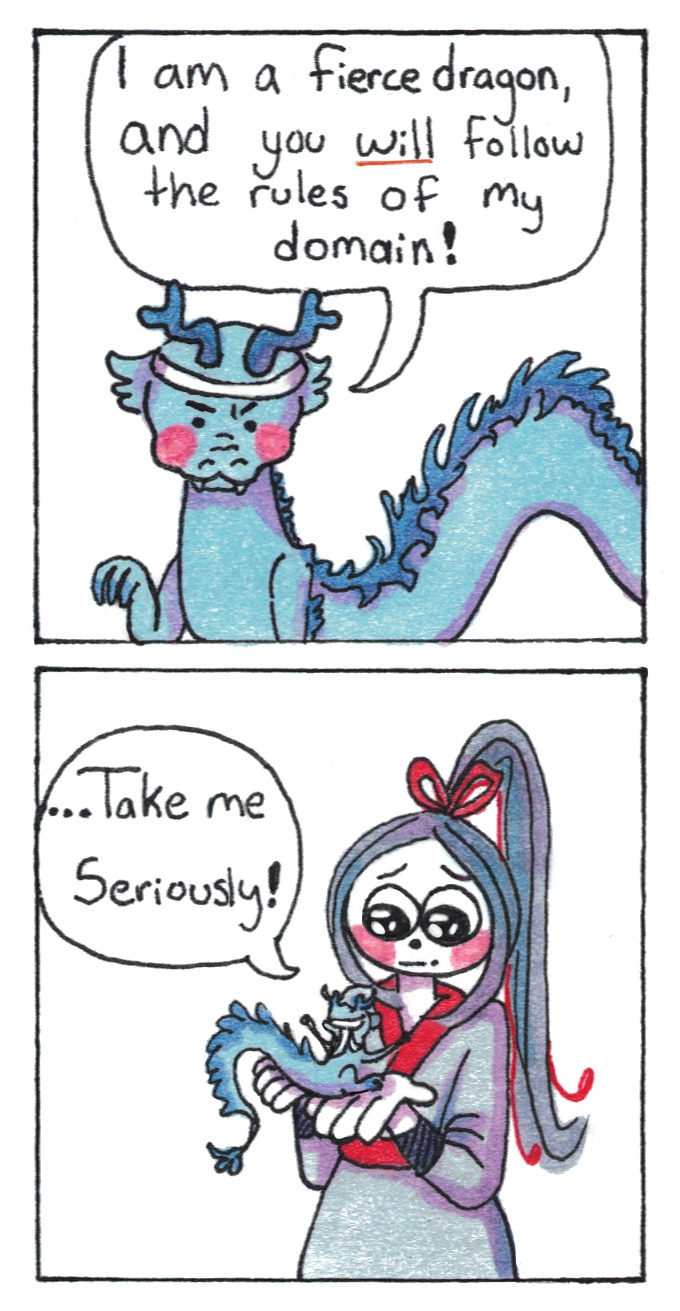
Sorry for not having a Year of the Dragon MDZS artwork; Unfortunately, I can only picture Dragon LWJ in this particular flavour.
#poorly drawn mdzs#mdzs#lan wangji#wei wuxian#Dragon AU#MDZS AU#noodleji#(IT'S A REAL TAG!!! AAH!!! THROWING MY HAT TO THE LITTLE GUY LOVERS!)#Yes I watched Fruits Basket in my teen years and yes it left a significant impression on me.#'The Dragon Transforms' and its just into a small little guy.#Even more points if the human form is a Tall Guy.#Sadly this does not appear to be a common nor popular variation so I will sit on my little hill alone. (EDIT: I WAS WRONG)#Dragon LWJ probably would be some kind of river dragon. Lesser god of a small stream.#One that grows bigger with time but always has the reputation of being benevolent and calm to those who seek its clear waters.#Do not pollute these waters or your ass is going to be bit. 1000 tiny puncture marks.#I imagine that's probably how wwx first meets him (accidently pours booze into lwj's river) (gets bit - gets bit - gets bit-)#WWX eventually befriends him through stubbornly showing up every week to give him offerings.#Takes him into town in a little pot of water to show him how the people live. Maybe go to a festival.#When the day is done and he's back in his river and alone - LWJ finally feels a new emotion...it is longing and loneliness.
2K notes
·
View notes
Text

old man yaoi
#Ichikarume Art#mad scientist and his fisherman husband#they fight over water pollution#grumbo#grumbo fanart#grian#grian fanart#mumbo jumbo#mumbo jumbo fanart#hermitshipping kinda#waffle duo#waffle duo fanart#hermitcraft#hermitcraft fanart#hermitblr
284 notes
·
View notes
Text
putting my prediction on record now that the coming decade is going to see the rise of viral-marketed fancy at-home water filtration systems, driving and driven by a drastic reduction in the quality of U.S. tap water (given that we are in a 'replacement era' where our current infrastructure is reaching the end of its lifespan--but isn't being replaced). also guessing that by the 2030s access to drinkable tap water will be a mainstream class issue, with low-income & unstably housed people increasingly forced to rely on expensive bottled water when they can't afford the up-front cost of at-home filtration--and with this being portrayed in media as a "moral failing" and short-sighted "choice," rather than a basic failure of our political & economic systems. really hope i'm just being alarmist, but plenty of this already happens in other countries, and the U.S. is in a state of decline, so. here's praying this post ages into irrelevance. timestamped April 2023
#apollo don't fucking touch this one#serious post#not a shitpost#hope i forget about this post and have no reason to ever look back on it one day#fyi i'm aware that access to potable water is already a major issue in parts of the U.S. yes i know flint michigan exists#i'm saying that this issue is going to GROW unless local & federal governments work together to fix it.#so it's a matter of if we trust them to fix it. And well--do you?#what are the chances the government just denies there's a problem until the water actually turns brown#at which point it's already been common knowledge for years and people have just become resigned and that's our new normal#i'm mean come on. how many of us already believe that we're being exposed to dangerous pollutants we don't know about and can't avoid#like that's pretty much just part of being a modern consumer. accepting that companies will happily endanger your life for a few pennies#and the most you'll get is like a $50 gift card as part of a class action rebate 20 years down the line#probably the history books will look back on Flint as a warning and a harbinger that went ignored#luxury condos will advertise their built-in top-of-the-line filtration systems--live here and you can drink water straight from your tap!#watch the elite professional class putting $700 dyson water filtration systems on their wedding registry#while the rest of us figure out how to fit water delivery into our grocery budget while putting 90% of our paycheck towards rent#also eggs are $15
5K notes
·
View notes
Text
102 notes
·
View notes
Text
Living machines are essentially intensive, indoor artificial wetlands. Technical names for living machines include "advanced ecologically engineered systems" and "fixed-film ecology wastewater treatment systems." What they entail is mimicking natural processes of biological decomposition in a constructed aquatic environment. Simply put: dirty water goes in, passes through a series of self-contained aquatic ecosystems, and clean water comes out. The water is, in fact, so clean that it can be safely discharged into sensitive aquatic environments, like natural wetlands. And it does all of this without any of the usual chemical treatments or high-energy inputs of conventional wastewater treatment. Living machines produce such safe effluent because they achieve what is known as "tertiary treatment," meaning they successfully abate pollutants. How does a biological system do this? Simple: it uses them as inputs. Let me explain. The most common such pollutants are nitrogen and phosphorous. These happen to be the two nutrients whose out-of-whack flows have pushed us past a key planetary boundary. The biggest reason for this is industrial agriculture: it relies on synthetic nitrogen and mined phosphorous to exceed the carrying capacity of the ecosystems in which it operates. One of the big problems with industrial agriculture is that a great deal of the nitrogen and phosphorous applied isn't actually utilized by the food being produced: most of it runs off into waterways. This leads to far-reaching, ecologically catastrophic events ("eutrophication"). By constructing a complete food chain within the living machine, each step creates the food for the next step. Excess nutrients, like nitrogen and phosphorous, feed microorganisms which are then consumed by larger creatures and so on up the food chain, until we are left with harmless components and a great deal of life. The living machine converts pollution into biodiversity and clean water, instead of run-off and eutrophication. It's a prime example of true "regeneration."
188 notes
·
View notes
Text
Ko-fi prompt from IndigoMay:
What would be the economic impact if people could magically grow whatever food they liked? Including fodder for animals.
This is a very wide-ranging question, like... when was the magic introduced? What was the state of agriculture before that? Is this food generated from existing matter, delivered by gods, or something else?
I'm going to narrow this to:
What would happen if people could, starting tomorrow, grow any plant...
That is edible, by either humans or livestock, with appropriate treatment.
Without delay, meaning that the time sink is several minutes instead of weeks or months.
Without concerns for weather or other natural dangers like fungal infections or pests, or requirements for water or fertilizer.
Without depleting soil nutrients, so long as they have arable land to work with.
Without relying on fresh seeds or other 'raw ingredients' like leaf cuttings.
Well... let's start small.
Personal Basis - people who are not farmers
People who do not normally grow things would start angling to acquire some kind basic gardening implements. For some, like those who live in the suburbs, this would be as simple as going into the backyard. For those in cities, they'd need to get a window box or similar to use. If you have free, guaranteed fresh plant matter, that's already a good thing, but the time and care required to keep a garden alive is more than some people can manage due to work or children or housing. With immediate food that requires minimal effort, a lot of those hurdles are removed. You can grow the two tomatoes you need for dinner, and then put the pot of soil away for tomorrow.
The cost of
Personal Basis - small farmers
The obvious impacts for those who are small farmers is that people are less likely to buy their raw ingredients. Most of these small farmers would start looking into modifying their operations to do things that require processing.
Growing apples in your house for a snack is fine--if you have a pot big enough for a small tree, and a way to dispose of the wood if it's a one-time thing--but if you want applesauce or cider or pie, someone who knows how to cook or bake needs to do that part. You can grow wheat, but your chances of having the necessary tools to grind flour are slim. You can grow cashews, but fuck knows how you're going to process that without poisoning yourself! You can grow grapes on your trellis, but that doesn't mean you have the knowledge to make wine without accidentally going straight to vinegar. You can grow corn, but that doesn't mean you know the best way to dry it to make popcorn.
So small farms shift to those products that either need processing, or are part of an animal-based food. This includes things like flowers for bees. You can't really control bees, so just 'grow and go' might incite the bees to leave somehow. Maybe they can sense magic! Who knows!
Another option would be to focus on unique or heirloom things. If you go to a farmer's market, you might be going just to see all the fruits you've never encountered before. If there's an apple stand one year, and suddenly you can grow your own apples at home, then maybe what they start doing is growing unique or rare cultivars that you've never heard of, and that's their new niche. It's not that you can't grow the apples, but would you grow them if you've never heard of them? Plus, the apple stand is doing sauces and ciders now.
Mid-tier and large farms
These farms will start to focus in on large-scale crops that don't go straight to tables or cooking pots in homes. Scrap the eggplants, the cucumbers, the blueberries. Focus on:
Fruits and vegetables that are needed for popular secondary products, like tomatoes (ketchup, marinara), or oranges (juice), or corn (anything with fructose corn syrups, popcorn).
Plants that are popular but NEED processing to be edible, like coffee beans, cocoa beans, or wheat, that most people just don't have.
Plants that are needed in massive quantities for animal feed, such as alfalfa or chicken grains.
Now, I think these large farms would still be in production. We'd see a massive reduction in water usage, which is great (except for cranberries, I guess), but many of these products would still be needed in quantities that need industrial levels of processing. Someone needs to pick the oranges, to drive them to the juicing facility, the facility needs to juice and treat and preserve and bottle them, and then that needs to be driven to the store. The reduced time to grow, reduced water usage, reduced waste from natural predators or dangers, and general ability to plan things more efficiently would result in lower costs for many of these products in a truly free market... but would possibly also rise in cost as companies try to maintain a consistent flow of profit.
Sure you can make the juice at home, but what if you're already at work? There's still a demand for products; most of us can get water from a tap at home, but there are still convenience stores selling bottled water on every other corner in a big city.
I think the most interesting of these concerns would be grazing animals, like sheep, cattle, and goats. Being able to 'refresh' the grass of a single field without having to rotate the animals to new pastures once they've eaten away at one, and without damaging the nutrient profiles of the one they're staying at, means reduced deforestation or soil destabilization in agricultural areas. We'd see a fairly significant stalling of things like the decimation of Mongolia's grasslands if the goats didn't need as much grazing land.
Maintaining the meat industry would be one of the most constant sources of demand for large-scale agriculture, given that other products could go through cycles to more efficiently use land. You can grow and harvest oranges for Tropicana on Monday, grapes for Welch's on Tuesday, soy beans for Silk on Wednesday, tomatoes for Heinz on Thursday, and so on. They probably won't need more than they used to.
Meanwhile, the cows gotta eat. And eat. And eat.
Corporations
This one is fun! MONSANTO'S GONNA BE PISSED.
So, magically growing food, you don't need seeds, at least in this case. Or you can coax more product out of a seed you already have planted. You've gotten eight cycles corn out of this one stalk this season!
So Monsanto loses some of that insane seed monopoly situation.
You'd see a decrease in pesticides and anti-fungal products as agriculture speeds up a cycle by enough to prevent the spread of dangerous infestations. It's not going to kill your entire farm if you find fungus one day and have to burn it to prevent the spread. You lost one day's profit, not a full year's.
This impacts Monsanto too. Remember the Roundup debacle?
Now, to be clear, there are still plants that will rely on pesticides and anti-fungals. The premise only covers food, after all, so there are still important plants that will need longer, dedicated growing seasons.
Industry-wide shifts
Sooooooooooo a lot of the money starts to come from non-edible plants. This is your cottons, linens, hemps, latex/rubber trees, cork trees, lumber, and so on.
As the needed arable land necessary to feed humanity (and our livestock) decreases, more land is freed up for return to indigenous peoples, reclamation by nature, usage for alternate cultivation, housing, or... well, other capitalist ventures, like bitcoin mining or whatever.
On a geopolitical level, this causes some interesting shifts in places that draw their power from being 'breadbasket' nations. For instance, if you remember the start of the Russo-Ukrainian war, we saw some major pressures being placed by virtue of some countries (e.g. Lebanon, Pakistan) getting most of their wheat from Ukraine, and the war suddenly cutting off a massive portion of how they fed their people. Much of Ukraine's support, in those early days, derived from their importance as a breadbasket nation. If everyone can grown their own food, that moves the lines. Countries that are poor on space or water can stop relying on trade to survive in terms of water. Countries that rely on their agriculture to be able to trade for other things need to diversify their economies, and fast.
(Does mean that Saudi Arabia can stop using Arizona's water, though.)
The greatest shifts would come down to water usage and pollution, I think. Agriculture is currently one of the biggest contributors to the climate crisis, and the reduction of water use by farming would be a massive help. However, I'm less sure of how we'd see meat consumption change. The greater availability of fresh fruits and vegetables could result in a shift towards more plant-based diets worldwide, but just as easily we could see large agricultural corporations (and those that rely on them, like John Deere or the aforementioned Monsanto) market meat to consumers as a greater rate due to the profit margin.
Oh, also, I have a feeling that a lot of those corporations would try to get garden centers shut down, or buy out ceramic pot and planter factories. If you can't grow anything at home because you don't have a window planter, you have to buy from the store, right?
#ko fi#ko-fi#ko fi prompts#phoenix talks#magic#agriculture#microeconomics#macroeconomics#politics#environmentalism#water usage#pollution
109 notes
·
View notes
Text
Tires and Microplastics and fossil fuel waste
#tiktok#air pollution#water pollution#pollution#fossil fuels#electric vehicles#electric cars#cars#microplastics#climate crisis#climate change
134 notes
·
View notes
Text
Per- and polyfluoroalkyl chemicals, known commonly as PFAS, could take over 40 years to flush out of contaminated groundwater in North Carolina's Cumberland and Bladen counties, according to a new study from North Carolina State University. The study used a novel combination of data on PFAS, groundwater age-dating tracers, and groundwater flux to forecast PFAS concentrations in groundwater discharging to tributaries of the Cape Fear River in North Carolina. The research is published in the journal Environmental Science & Technology. The researchers sampled groundwater in two different watersheds adjacent to the Fayetteville Works fluorochemical plant in Bladen County.
Continue Reading.
102 notes
·
View notes
Text
"Legislative momentum against PFAS has surged this year, as at least 11 states enacted laws to restrict the use of “forever chemicals” in everyday consumer products or professional firefighting foam.
The legislation includes bans on PFAS in apparel, cleaning products, cookware, and cosmetic and menstrual products. Meanwhile, lawmakers in some states also passed measures that require industries to pay for testing or cleanup; order companies to disclose the use of PFAS in their products; and mandate or encourage the development of PFAS alternatives, according to Safer States, an alliance of environmental health groups focused on toxic chemicals.
In total this year, at least 16 states adopted 22 PFAS-related measures, according to the group. Since 2007, 30 states have approved 155 PFAS policies, the vast majority of them in the past five years.
The thousands of chemicals categorized as perfluoroalkyl and polyfluoroalkyl substances, or PFAS, do not naturally break down and are found in the blood of 97% of Americans. Some PFAS compounds can harm the immune system, increase cancer risks and decrease fertility...
Earlier this year, the U.S. Environmental Protection Agency released new standards limiting PFAS in drinking water. Water systems have five years to comply with the rules. Even before the EPA action, 11 states had set their own limits on PFAS in drinking water, starting with New Jersey in 2018.
Water utilities and chemical manufacturers are challenging the new EPA standards. But states also are heading to the courthouse: So far, 30 states have sued PFAS manufacturers or key users for contaminating water supplies and other natural resources, according to Safer States...
Sarah Doll, national director of Safer States, said one reason states have been so successful in enacting PFAS limits is that more companies are willing to stop using the chemicals.
“When California restricted PFAS in textiles, all of a sudden you saw companies like REI saying, ‘We can, we’re going to do that. We’re going to move to alternatives,’” Doll said.
In Vermont, state lawmakers in April unanimously approved a measure banning the manufacture and sale of PFAS in cosmetics, menstrual products, incontinence products, artificial turf, textiles and cookware.
“The same as everyone else, like Democrats, we want to make sure that we remove PFAS and get it out of products as soon as we can,” said Vermont Republican state Rep. Michael Marcotte, who said his district includes cosmetics manufacturer Rozelle Cosmetics, in Westfield.
Democratic state Sen. Virginia Lyons, the chief sponsor of the Vermont bill, said it is particularly important to get PFAS out of products that are essential to consumers.
“There are some consumer products where you can say, ‘I don’t need to buy that, because I don’t want PFAS,’” Lyons said. “But it’s really tough to say that [about] a menstrual product.”
California’s latest PFAS measure, which Democratic Gov. Gavin Newsom signed last month, specifically bans the use of PFAS in menstrual products. Democratic Assemblymember Diane Papan, the author of the bill, said it was particularly strong because it covers both intentional and unintentional uses of PFAS, so “manufacturers will have to really be careful about what comes in their supply chain.”
While more states enact laws focused on specific products, Maine is preparing to implement the world’s first PFAS ban covering all consumer goods. The Maine law, which is scheduled to take effect in 2030, will include exceptions for “essential” products for which PFAS-free alternatives do not exist. Washington state has also taken a sweeping approach by giving regulators strict timelines to ban PFAS in many product categories.
#united states#vermont#california#washington#washington state#plastic#pfas#pfas pollution#pfas chemicals#us politics#clean water#consumer protection#new jersey#maine#good news#hope#north america
692 notes
·
View notes
Text
Subspace doodles (PHIGHTING! Mermaid au)

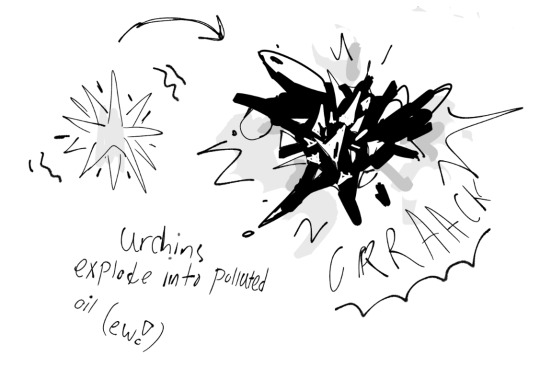
so I was thinking more about the PHIGHTING mermaid au I’m doing and. What if subspaces’ gas- instead of being like actual gas, was polluted oil? I think that could make for a really cool trope if I ever were to redesign him for it :3!
For the design notes in specific:
When out of control, his “gas” takes the form of polluted oil, in control (as in wearing his mask and tank) it gets filtered into something akin to toxic brine (in which long exposure to can cause a lot of issues, specifically different types of shock, breathing issues, etc). Although the brine isn’t too dangerous to be around in small amounts, it can be harmful over time.
for those wondering what ACTUAL brine water (or more specifically brine pools) are, it’s pretty much a large accumulation of highly concentrated saltwater (which usually is around 10 times saltier then the ocean surrounding it) For most sea animals this brine means instant death due to the fact that is has no oxygen in it as well as the high saline levels.
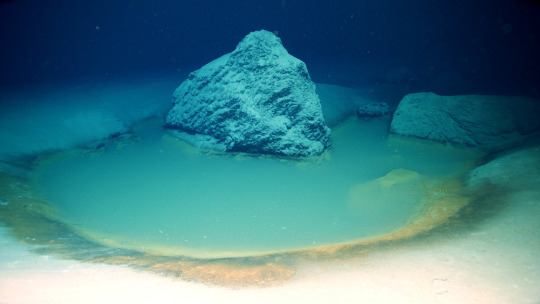
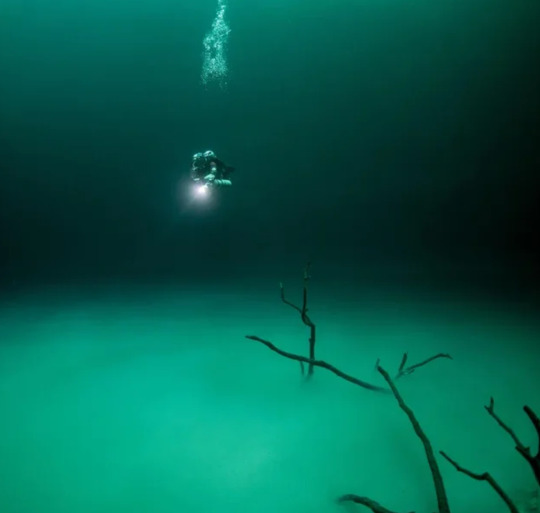
(Im hyper fixating again can you tell)
#AUUUUUGH#ME WJEN THE#ME WHEN THE OCEAN IS THE COOLEST THING EVER#Anyways yeah! My inner marine biologist is coming out again it seems!#I think this would would pretty well for squidspace#Unfiltered his gas is polluted oil and filtered its lower concentrations of brine#Subspaces filtered brine I feel like would be around a 2-4 on how salty it is compared to the rest of the water#I also imagine that the oil he produces can be collected- and is used to help power the biografts#His urchins are also INCREDIBLY unstable#And will explode if thrown/stepped on/and or are handled a bit too roughly#To subspace hes immune to their affects#But to others they can be really dangerous as oil can stick to fins/gills/or mouths#Anyways enjoy this small thing#i love the world building for this au so much#I’m so proud of myself for coming up with it#I can’t WAIT for mermay >:3#art#artists on tumblr#phighting fanart#phighting!#digital art#roblox phighting#phighting#phighting art#roblox#phighting roblox#phighting! roblox#phighting! art#phighting! subspace#subspace tripmine
196 notes
·
View notes
Text

Get rid of capitalism before it self-destructs and causes the extinction of humanity
#Get rid of capitalism before it self-destructs and causes the extinction of humanity#anti capitalism#antifascist#antiauthoritarian#161#1312#class war#ausgov#politas#australia#antinazi#antizionist#extinction#extinct animals#extinct species#extinct birds#auspol#tasgov#taspol#fuck neoliberals#neoliberal capitalism#anthony albanese#albanese government#pollution#science#pollutants#polluted air#polluted water#polluters#human rights
66 notes
·
View notes